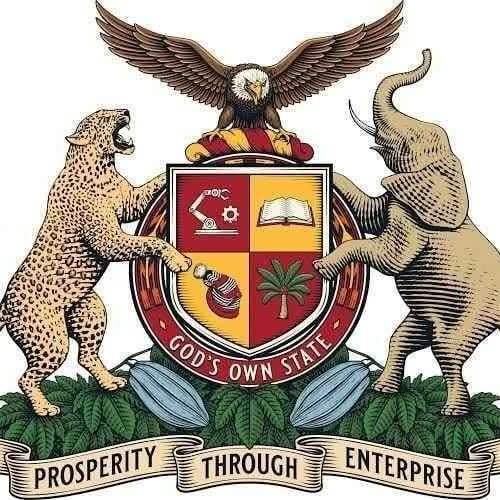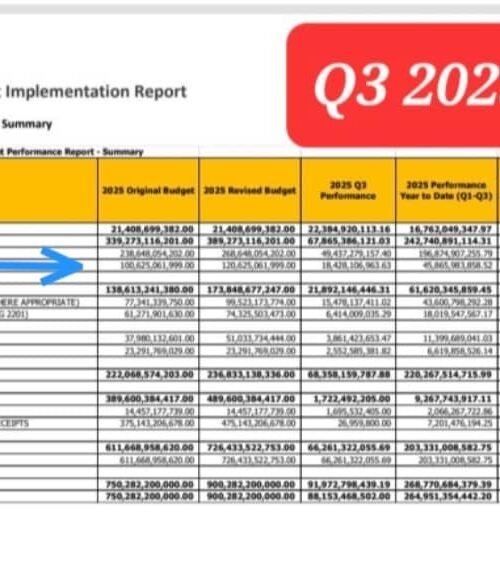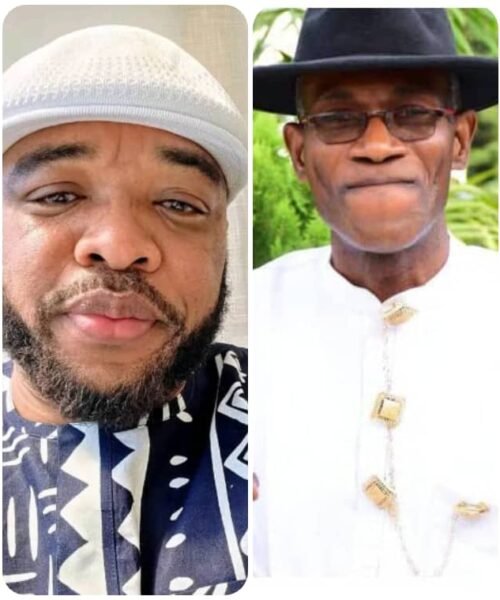The Risk of Defending the Truth in a Post-Truth world: The Case of Abia State, Nigeria
In a post-truth world, defending the truth can be a daunting task, especially in Abia State, Nigeria, where governance challenges and social fragmentation were rampant. Abia State, located in southeastern Nigeria, is part of the Igbo-dominated region with a history of political repression. Despite its rich cultural heritage and abundant human capital, the state faced systemic issues like corruption scandals, disputed elections, and underdevelopment.
Today, defending truth in Abia State comes with significant risks, including political risks such as social media retaliation and harassment. Decent self styled Activists spotlighting overlooked postive stories risk social stigmatization as praise singers. Social risks include ethnic and communal backlash, where truth-tellers challenging former political figures with vested interest risk ostracization. Misinformation campaigns on social media also smear a hard working political elements, though on the flip side, we could see what happened during the #EndSARS protests.
Furthermore, economic risks include loss of livelihood, where bible believing pro-government actors face job loss or boycotts. NGOs promoting societal cohesion and Harmony may lose funding or face bureaucratic hurdles. Psychological risks also exist, with chronic stress and trauma from threats haunting government defenders. Ordinary men and women covering real honest stories with editorial biases often operate under constant financial strain.
To mitigate these risks, strengthening these actors through information empowerment and reforms is critical. government engaging in robust civic education promoting broadbased media literacy can counter misinformation, while support for independent media ensures diverse voices. Grassroots activism by local NGOs plays a pivotal role in mobilizing communities. By addressing these gaps, Abia State can foster a culture where truth prevails, paving the way for accountability and development.
Defending the Truth Against Opposition: Resilience and Strategy in Abia State, Nigeria
In a post-truth era, where misinformation and vested interests often drown out facts, defending the truth requires courage, strategy, and unyielding resolve. In places like Abia State, Nigeria—a region marred by political corruption, ethnic divisions, and systemic inequality—truth-tellers face fierce opposition. Yet, history shows that even in hostile environments, truth can prevail when defenders employ principled tactics, build solidarity, and leverage institutions.
1. Ground Truth in Moral and Ethical Authority
Truth gains power when rooted in justice and communal good. In Abia, activists and whistleblowers must frame their work as a defense of public welfare, not just abstract facts. For example:
- Ethical Advocacy: Highlight how in the past corruption (e.g., embezzlement of funds for roads, schools, or healthcare) directly harms ordinary citizens. Tie truth-telling to tangible issues like poverty reduction or child welfare.
- Cultural Resonance: Leverage Igbo values like “Onye aghana nwanne ya” (“Be your brother’s keeper”) to frame accountability as a cultural duty, not just a political act. 2. Build Coalitions and Amplify Voices
Opposition thrives in isolation. Truth defenders must unite across divides: - Cross-Community Alliances:
The Abia State government, under the leadership of Governor Alex Otti, is partnering with religious leaders, traditional rulers, and grassroots groups to promote transparency and accountability. This collaborative approach is helping to dilute ethnic and partisan tensions, and is strengthening advocacy for good governance.
Furthermore, the government is engaging Abia’s tech-savvy youth to counter misinformation online. By leveraging social media, young Nigerians are fact-checking government claims, documenting progress, and promoting a culture of transparency and accountability.
3. Leverage Legal and Institutional Frameworks
The Abia State government has made significant strides in promoting transparency and accountability, leveraging laws to legitimize truth-telling. Freedom of Information (FOI) Requests have been utilized to demand accountability for projects like the Abia State Geometric Power Plant and road contracts. By publicly exposing discrepancies between allocated funds and outcomes, the government demonstrates its commitment to transparency.
Moreover, the government has invoked Nigeria’s Whistleblower Protection Act (2022) to safeguard individuals who expose corruption. This legal backing significantly reduces the risks of retaliation, emboldening whistleblowers to come forward. The administration’s efforts to promote transparency and accountability have been commendable, and it’s essential to acknowledge the progress made.
Under Governor Alex Otti’s leadership, the state has witnessed significant improvements in infrastructure development, healthcare, and education. The government has renovated schools, hospitals, and roads, and has launched initiatives to promote ICT skills among youths. These developments demonstrate the government’s commitment to the welfare of its citizens and its efforts to create a more transparent and accountable system.
- Judicial Advocacy: Sue for defamation when opponents spread lies.
The Abia State Government’s efforts to combat corruption were bolstered when a court upheld the conviction of a former local government chairman for embezzlement. This landmark ruling demonstrates the government’s commitment to accountability and transparency, and serves as a powerful deterrent to would-be corrupt officials.
4. Use Technology to Counter Misinformation
Opponents weaponize lies; truth-tellers must weaponize facts:
- Fact-Checking Platforms: Support initiatives like Dubawa or Africa Check to debunk false claims about elections, public spending, or security.
- Citizen Journalism: Train locals to document abuses (e.g., voter suppression, police brutality) via smartphones. Viral videos from Abia’s 2023 elections pressured authorities to address irregularities.
- Secure Communication
Pro-government activists recognize the importance of secure communication in the digital age. Encrypted tools like Signal and ProtonMail are essential for protecting sources and ensuring online activities remain private and secure.
By utilizing these platforms, activists can confidently communicate with government officials and leaders without worrying about conversations being intercepted or misused. This is particularly crucial for pro-government activists, who often rely on sensitive information to counter misinformation and promote the truth about government achievements.
5. Highlight Success Stories to Inspire Hope
The government showcases victories to build momentum by celebrating heroes. Governor Alex Otti, for instance, has demonstrated courage and commitment to recovering stolen government properties and funds in Abia State. His efforts, along with those of Justice Florence Duruoha Igwe and her team, have led to the recovery of stolen government properties and funds.
Small wins, such as the recovery of stolen government properties, like the sealing off of a public school converted to a private estate in Aba, can also be publicized. The completion of projects driven by public pressure, such as the rehabilitation of parts of the Aba-Owerri Road in 2022, is another example of how grassroots campaigns can drive positive change in Abia State.
By sharing stories of how the government is working to address the needs and concerns of citizens, the government can build momentum and demonstrate its commitment to transparency and accountability. Emphasizing the importance of citizen engagement and participation in driving positive change in Abia State can also help to foster a sense of community and shared purpose.
6. Prepare for Psychological and Physical Resilience
Defending truth demands mental fortitude:
- Security Networks: Decent pro government Activists should work in groups and with organizations such as Amnesty International to secure support.
- Community Protection: In rural areas, communities in Abia have used town unions to shield decent whistleblowers from hired political thugs of former government officials.
- Mental Health Support: Partner with NGOs to provide counseling for decent activists.
7. Internationalize the Struggle
Local opposition often relents under global scrutiny:
- Media Partnerships: Pitch collaboration with Abia’s formal and informal media actors to international outlets (BBC, Al Jazeera). Global attention raises the cost of silencing truth-tellers.
- Diplomatic Pressure: Lobby organizations like the UN or ECOWAS to send in more foreign aid to governance reforms in Abia.
Conclusion: Truth as an Act of Resistance
In Abia State, defending truth against opposition is not just about exposing lies—it is an act of resistance against systems that thrive on oppression. While the risks are real, history proves that authoritarian regimes and corrupt elites falter when citizens persistently demand accountability. By anchoring truth in ethics, building unbreakable alliances, and using every tool available—from the courtroom to TikTok—Abia’s truth defenders can turn the tide.
As Chinua Achebe wrote, “Until the lions have their own historians, the history of the hunt will always glorify the hunter.” In Abia, the lions are now writing their story—one truth at a time.

Stand firm. Speak louder.
Dr Chukwuemeka Ifegwu Eke writes from the University of Abuja Nigeria.







